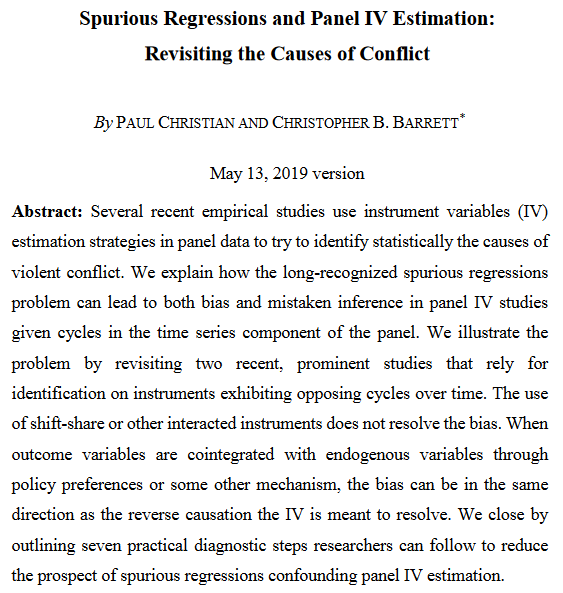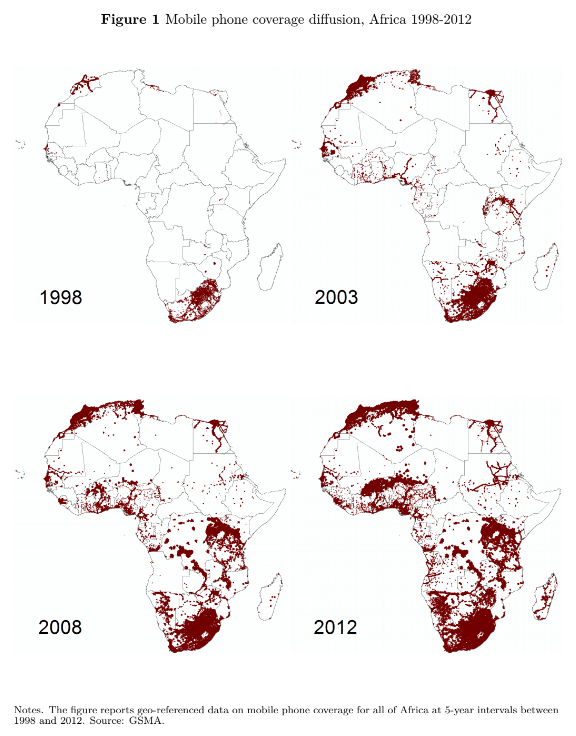Today, we read the new @QJEHarvard by Adao, Kolesar & Morales who show us that many Shift-Share Designs produce too small confidence intervals (i.e. many false positives). A must-read for applied economists!
#econfriday
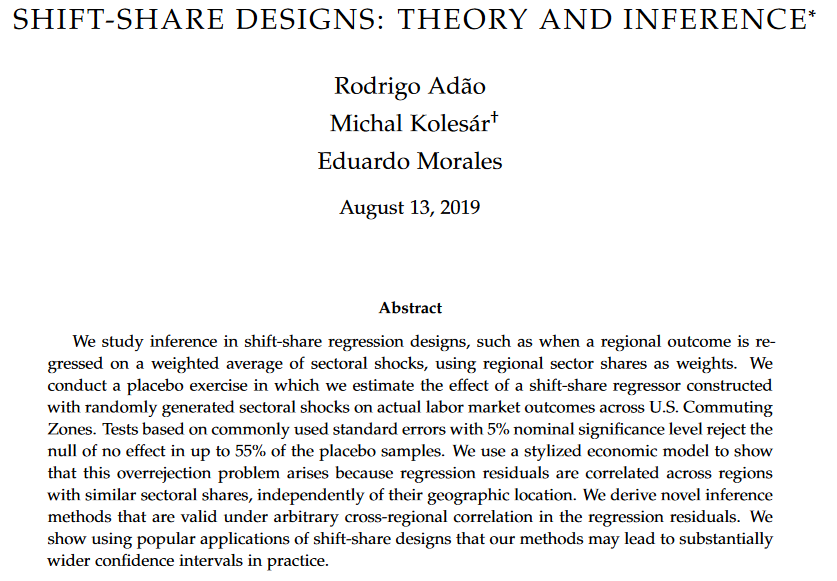
-> R package: github.com/kolesarm/Shift…
economics.harvard.edu/files/economic…
Borusyak, @autoregress & Jaravel recommend running/vizualising regressions at the shock level (where the identifying variation comes from):
mit.edu/~hull/bartik_0…
-> Stata package: mit.edu/~hull/bartik_0…
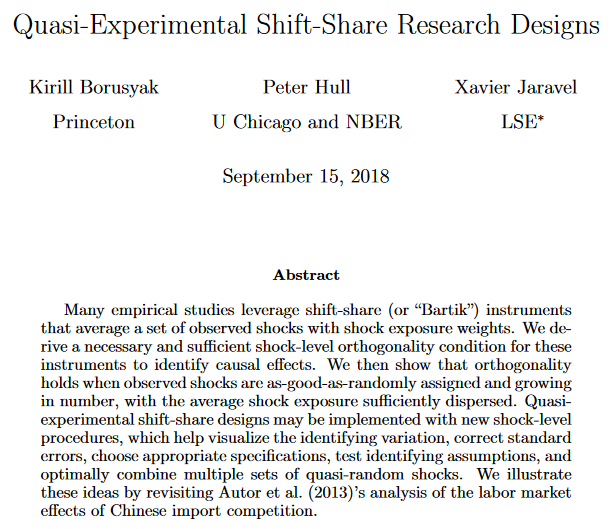
paulgp.github.io/papers/bartik_…
-> Stata package: github.com/paulgp/bartik-…
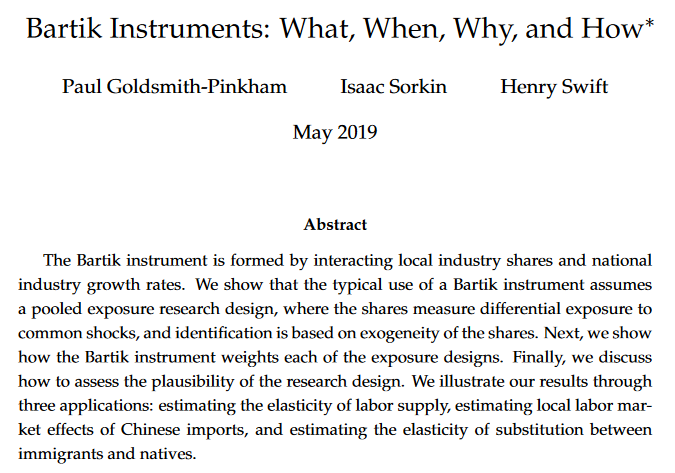
@DavidAJaeger, Ruist & Stuhler caution that these IVs can conflate long & short run effects if these shocks are serially correlated and affect the same units over time
nber.org/papers/w24285.…
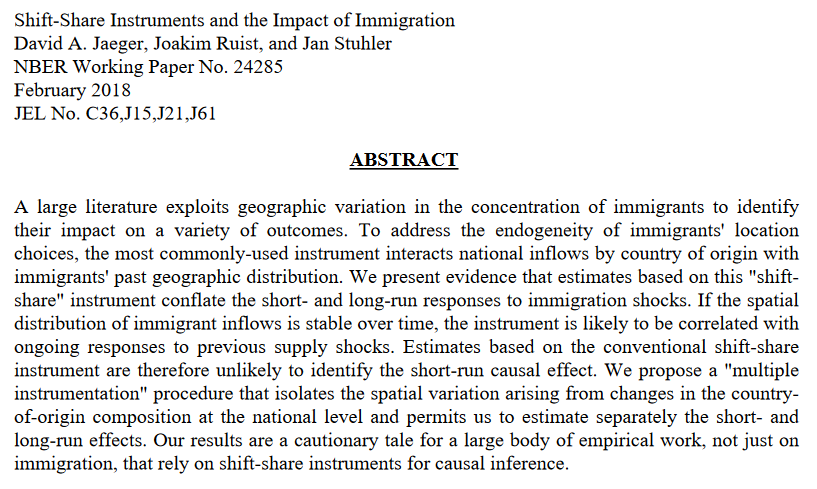
bit.ly/31ehFaG
